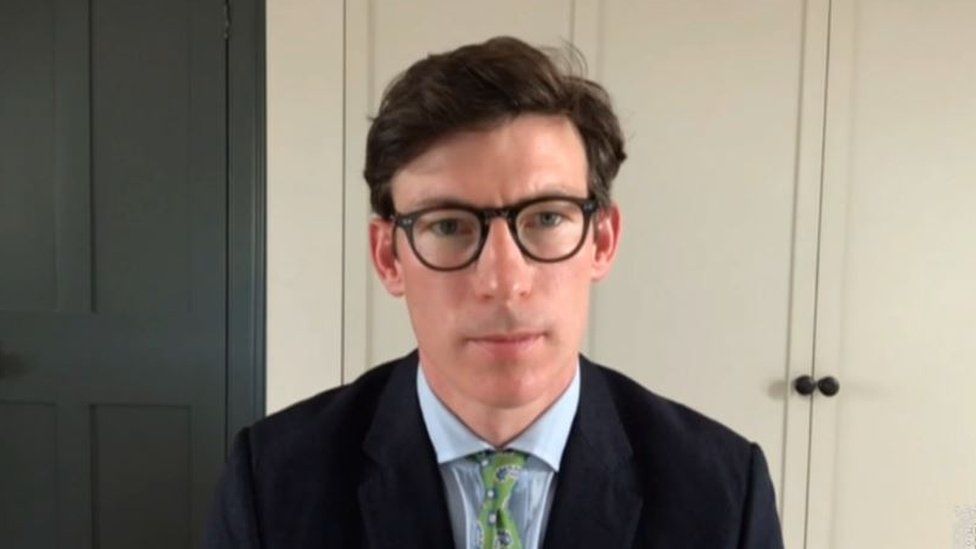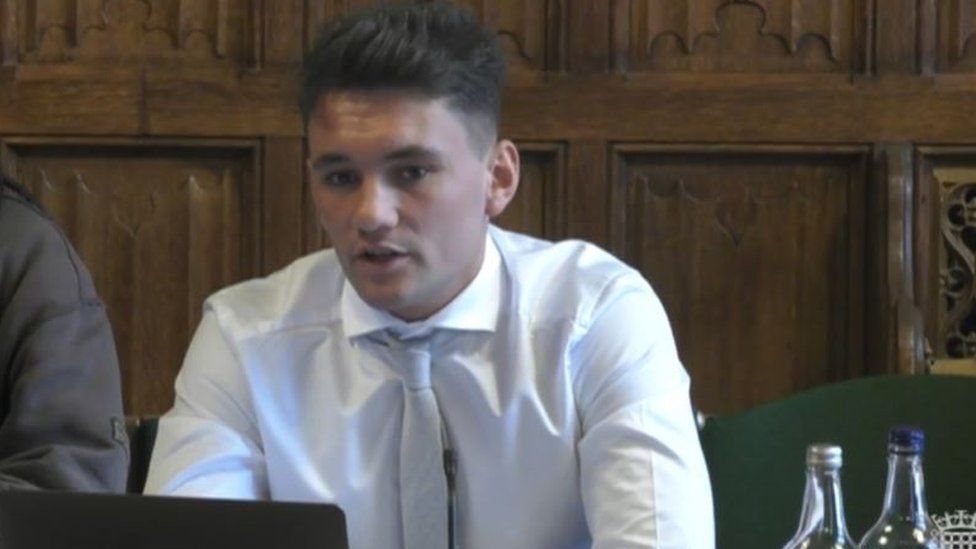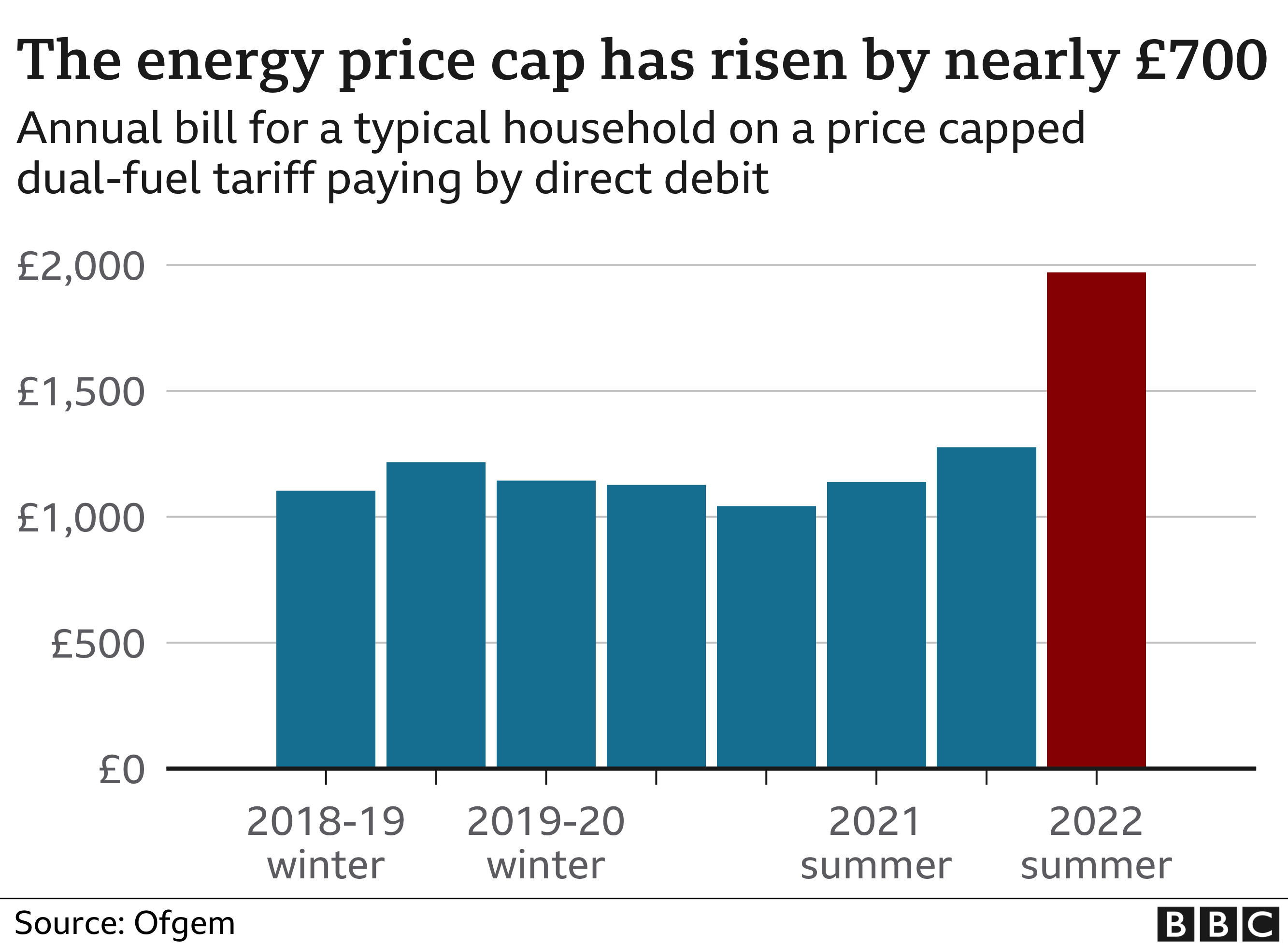Co-founder Hayden Wood tells MPs he was asked to stay on to “support customers”.

Image source, ParliamentTV
The co-founder of collapsed energy firm Bulb has defended continuing to be paid £250,000 a year, saying he is helping with a sale of the company.
Boss Hayden Wood told MPs he was asked to stay on to “support customers”.
He said he was “very sorry” for how the company collapsed when it buckled under rising wholesale gas prices.
Bulb collapsed late last year and was placed into “special administration”, being run by the government through regulator Ofgem until a buyer is found.
It is one of 29 suppliers which have gone bust following a sharp rise in wholesale gas prices.
The Business, Energy and Industrial Strategy Committee heard the collapse of Bulb was expected to cost the taxpayer £3bn – which is the biggest state bailout since the Royal Bank of Scotland went bust during the 2008 financial crisis.
Mr Wood told MPs the company had realised it “couldn’t afford” losses which would have been incurred in supplying energy to customers with prices of wholesale gas reaching 400p per therm – despite having £120m in the bank.
He said Bulb, which has 1.6 million customers, had been in discussions to raise funds and eventually to sell the company.
But when talks fell through, he said: “We had no reasonable prospect of being able to fund those losses for customers and that is when we made the difficult choice to enter special administration”.
He added: “I am very sorry for the way things turned out with Bulb.
“I think I and we at bulb…should take responsible for how the business failed.”
‘Morally justifiable’
Asked if it was “morally justifiable” that taxpayers continued to pay his salary after the company had gone bust, Mr Wood said: “I think everything we are doing right now is to try and complete a sale of the company so that we can minimise the cost to taxpayers and minimise the disruption to consumers.”
Mr Wood said he had never received a bonus from Bulb, had put all his personal savings into the company he created in 2015 and had since lost all his shareholdings in the firm.
At the time Bulb was placed in special administration, the Treasury set aside £1.7bn to purchase the gas required until the end of the tax year in April 2022 by which time had been hoped a buyer would be found for the business.
But government officials have conceded that the prospect of offloading the business to a private buyer seems remote in the current environment and that means that taxpayers will foot a bill.

Image source, ParliamentTV
The committee also quizzed Jake Brown, chief executive of now-collapsed firm Avro, which had 580,000 customers.
Mr Brown faced questions about loans his family business took out of the firm, as well as his failures to engage with regulators and energy charities. Avro’s collapse is expected to cost £700m.
The committee chair said Mr Brown had appeared to have gotten off “pretty lightly” when customers were now having to foot the bill for his business going bust.
Labour MP Darren Jones added Mr Brown “personified” the reason the government needed to change energy market regulation and said he “took customer money out the business”.
“In my view you should have never been allowed to start an energy company. I find it quite offensive that you have ended up with so much of customer’s money,” he said.
Mr Brown told MPs he had a “lot of regret” that company had gone bust and claimed he “had not touched any customers’ money”.
Earlier during the committee meeting, the bosses of four major energy firms called on the government to do more to help people struggling with soaring energy bills.
Keith Anderson, chief executive of Scottish Power, told MPs “so many people are really going to struggle” after prices rose by 54% from 1 April.
But he warned further rises forecast in October were going to be “horrific”.
E.ON boss Michael Lewis said efforts by the government to soften the blow of higher prices were “not nearly enough”.
Scottish Power’s Mr Anderson spoke to MPs alongside E.ON’s Mr Lewis, Simone Rossi the chief executive of EDF, and Chris O’ Shea the boss of British Gas owner Centrica.
Mr Anderson said his company had 8,000 calls with concerns about paying bills since the price for a household using a typical amount of gas and electricity increased by £693 on average – from £1,277 to £1,971 per year – at the start of April.
But he said his biggest concern was when prices are due to rise again in October, “particularly around the most vulnerable and poorest”.
“In summer consumption goes down. Come October that’s going to get horrific, totally horrific,” he said.
Mr Anderson said the energy price crisis had now “got to the stage now where I believe the size and scale of this is beyond what I can deal with, it’s beyond what I think this industry can deal with”.
The Scottish Power boss said the government should set up a “deficit fund” and wipe £1,000 off the bill of anyone who is deemed to be in fuel poverty and on pre-payment metres, which would be repaid by all customers or the government.
Mr Anderson said such a policy was required for people in fuel poverty that “puts their bill back to where it used to be before the gas crisis”.
But he said in the future the government should scrap the energy price cap – the maximum price suppliers in England, Wales and Scotland can charge households – and introduce a “social tariff”.
He said a social tariff would be “targeted to discount the price” to people in fuel poverty.

Mr Lewis, chief executive of E.ON, supported the idea of a social tariff but said the government could do more in the short-term situation which he said was something he had “never” seen in his 30-year career.
He said if the government did not provide more support for households, E.ON forecast 30-40% of its customers would “go into fuel poverty”.
To date, the government has said it will offer extra relief worth a total of £350 via the council tax system in England and in October customers in England, Scotland and Wales will receive a £200 rebate on their energy bills.
They will have to repay this at £40 a year for five years, starting in April 2023.
The warm house discount scheme is also being expanded to cover three million households. It offers low income households a one-off annual discount on their electricity bill, and was worth £140 in 2021-22.
Mr Rossi added the government support for bill payers announced in February was “proportionate at that point”, but added things had got worse as a result of the war in Ukraine.
Meanwhile, Mr O’Shea said 10% of Centrica customers – about 716,000 households – were in £440 of debt on average compared to 125,000 at this time last year.
He said the insolvency service “should pursue managers, the directors, the executives of every failed company”.
“Those that have misbehaved should feel the full force of the law,” he added.
- 22 November 2021


